Reading - including Phonics
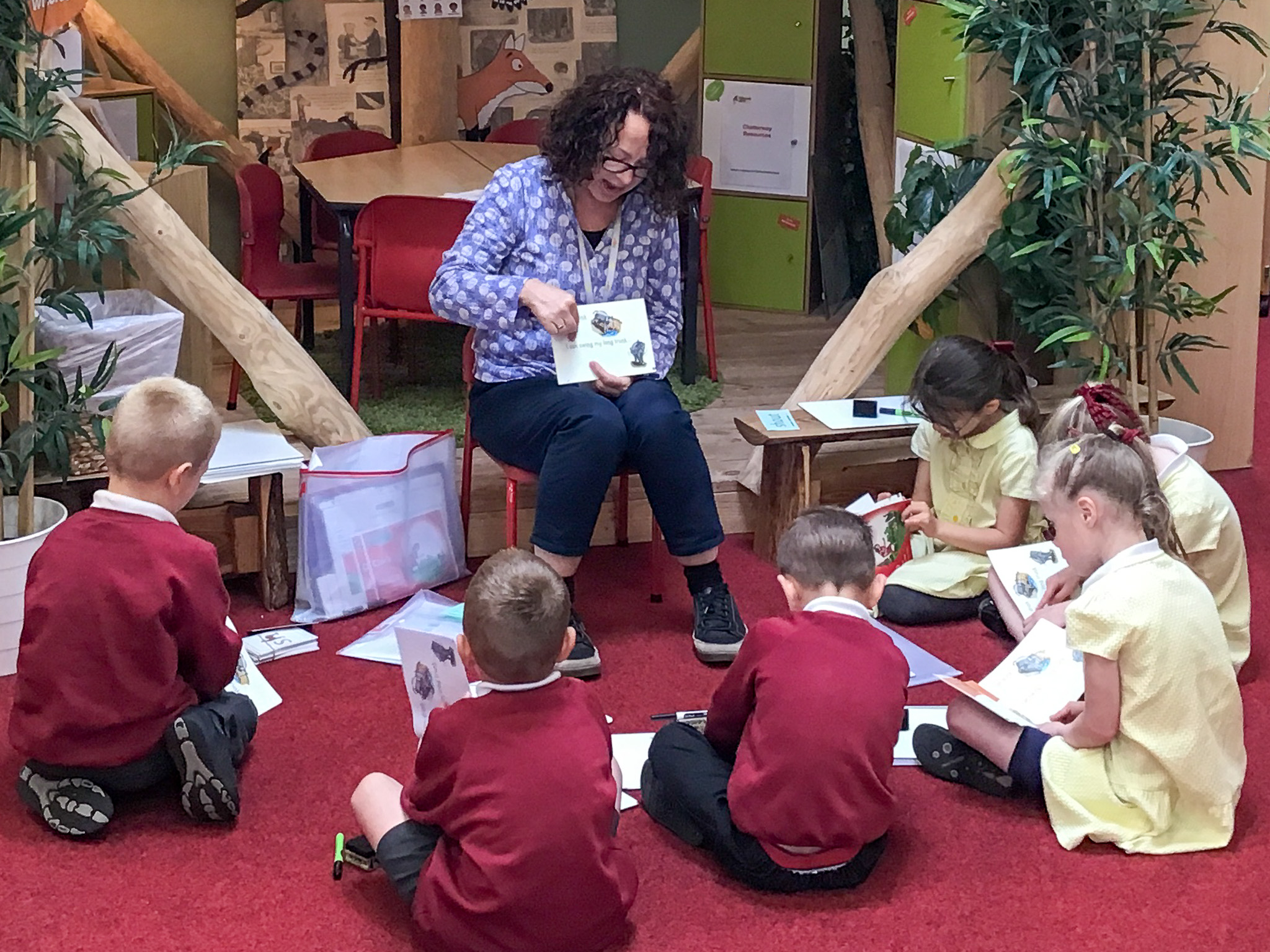
Reading is one of the most important skills that children develop in their early years. Reading allows us to be transported from our own world to another. Between the pages of a book, we can become immersed in the lives of fictional characters and learn about a culture entirely different from our own. We can also learn new words and phrases, experience a range of emotions, and acquire skills and knowledge. Because of the learning potential, the effects of reading on child development are vast. As such, teachers and parents are in a great position to ensure reading is a key part of children’s daily routine.
Reading For Pleasure
In each classroom, there is an engaging reading corner to promote a range of age-appropriate books. Alongside this, every class has a display showcasing their year group’s recommended reads and physical copies of these books are available for children to borrow. Throughout the week, children and teachers share in a class reader, exciting the children along the way!
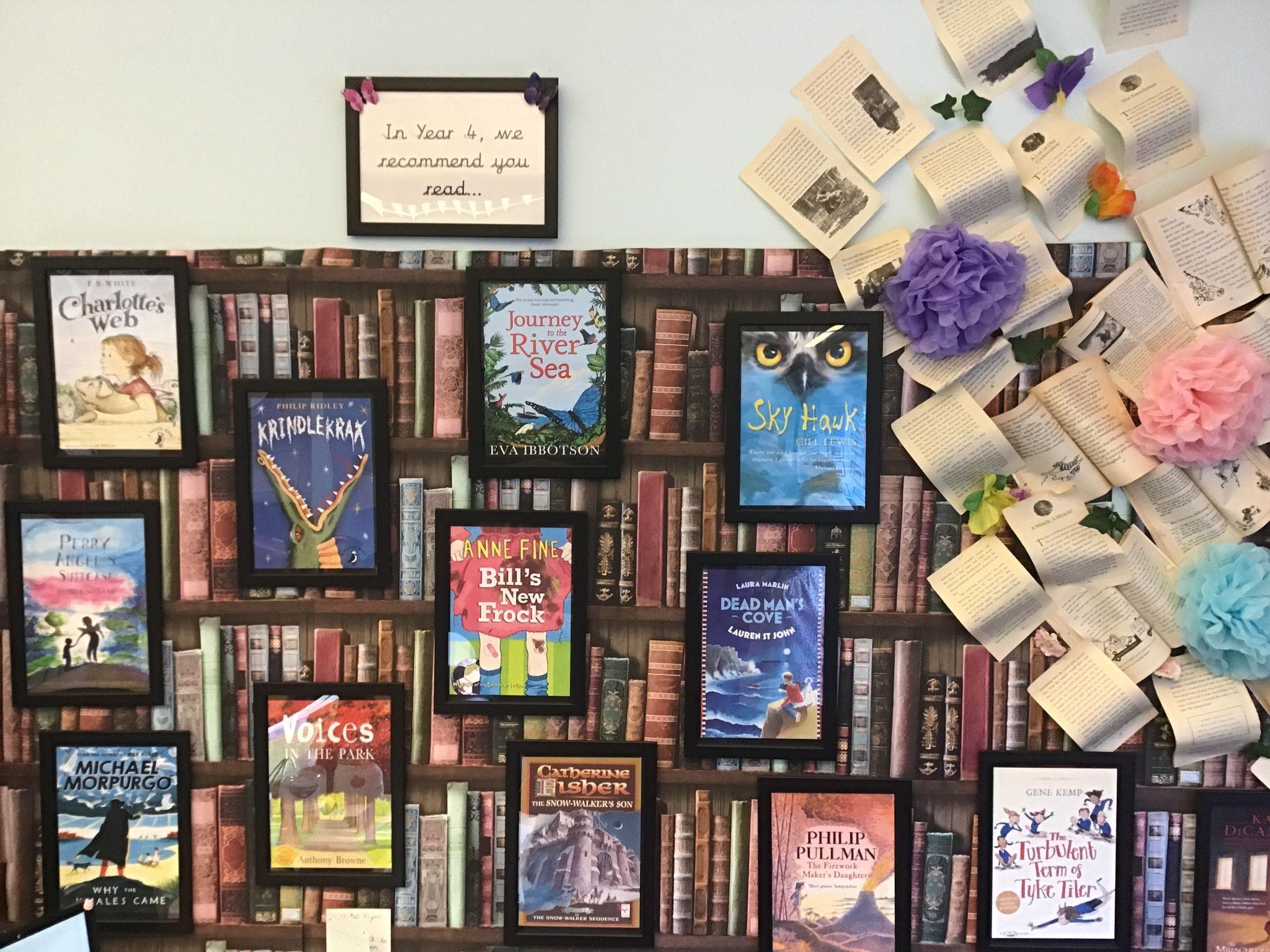
Our classrooms have a wide selection of new and exciting books, but children are encouraged to visit our library to select from our fantastic selection of books. The library is open each lunchtime and all children are able to choose a book that they can read purely for pleasure. The purpose of these books is to enable children to be exposed to stories and information that could be beyond their own reading ability - something that can be shared together! Access to a range of books will help children foster a love of reading because of the quality time spent sharing books with their families as well as their classmates. The library is run by our designated staff team, parent librarians and year 6 librarians who promote the books and organise book-based activities.

Additionally, we arrange regular activities throughout the year to further promote the love of reading: author visits, library challenges, and dressing up on World Book Day.
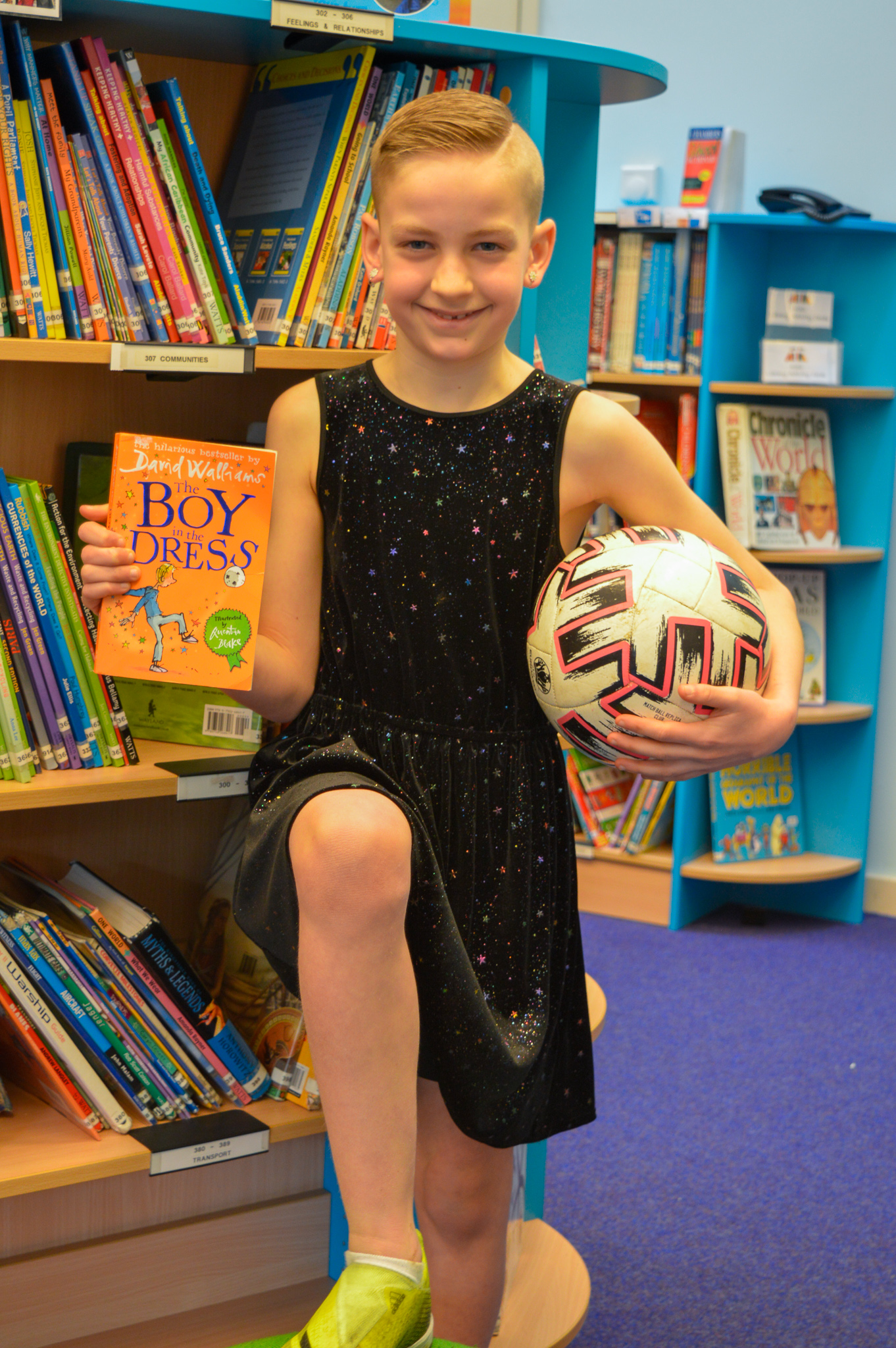
Progression in Reading
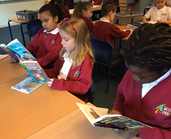
Teachers allow regular reading time for the children. Across school, children read their school reading books (R,W,I Book Bag books KS1 and Oxford Treetops KS2) to adults and their progress is tracked through our school tracking system. Please see the information in the phonics section to find out how we teach reading in the Early Years and KS1.
As well as teachers and teaching assistants, we have 2 Reading Support Specialists who support the children through one-to-one reading sessions, guided reading group sessions, targeted interventions and targeted book clubs. We also have a Parent Reading Support Team who give children extra reads each week, and further develop children’s comprehension skills through our VIPERS approach.

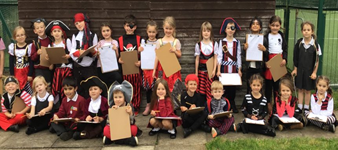
Children are given regular opportunities to read in school, in a variety of individual, group (including Guided Reading) and class contexts which further develop their reading skills.
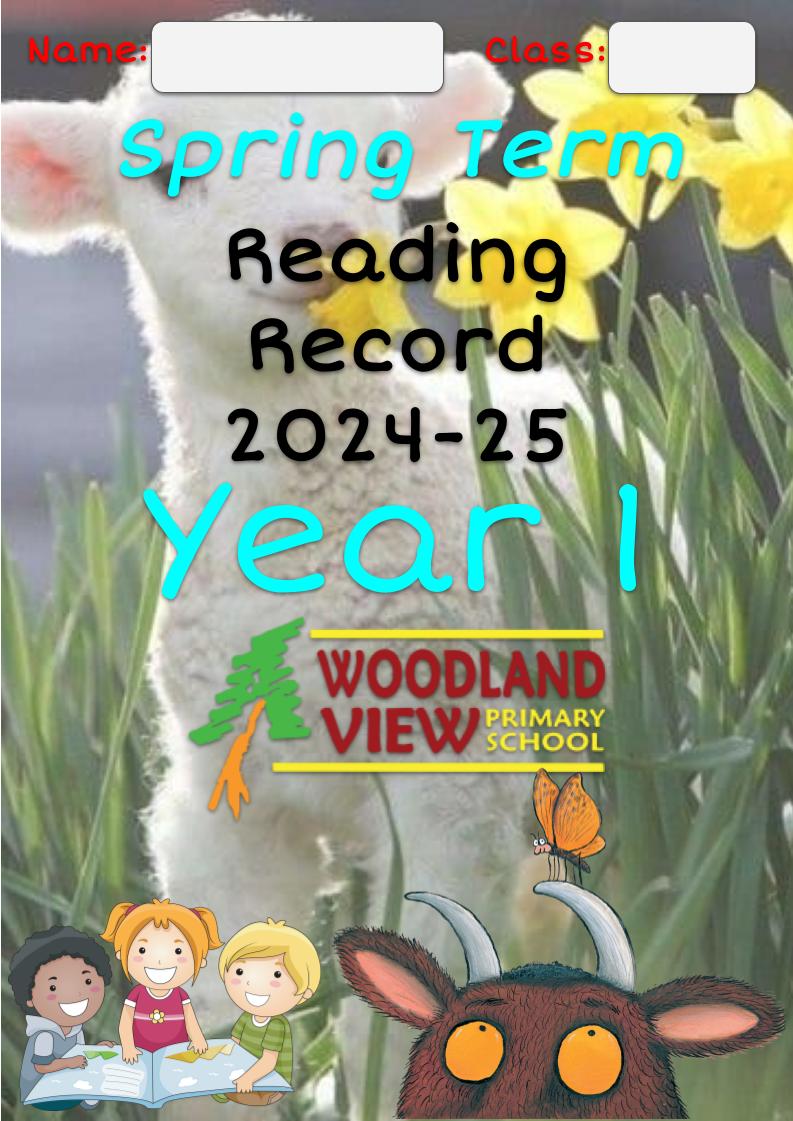
Each child from FS to Y6 has a bespoke Reading Record for every term which staff and parents write in and check so that our monitoring involves progress at home too. Our Reading Records are bespoke so that key reading messages, such as the Recommended Reads, Phonics sounds, Statutory Word Lists and VIPERS skills, are reinforced at home. Our successful approach means that many children in Year 5 become Free Readers before they reach Year 6 and usually all of our children do by the time they finish Key Stage 2.

Phonics and Early Reading
At Woodland View Primary School, we follow a synthetic phonic approach, Read, Write, Inc, to teach our children to read. This approach works by teaching each child to learn sounds and the letter or groups of letters that represent the sounds (a - play, cake, snail). Throughout phonic lessons, each child will learn to form each letter, spell correctly, read words by decoding them and to comprehend what they read. Children will be assessed regularly and placed in a phonic group that best suits their phonic knowledge/stage thus far.
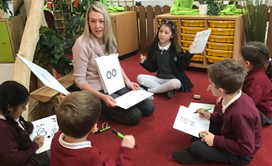
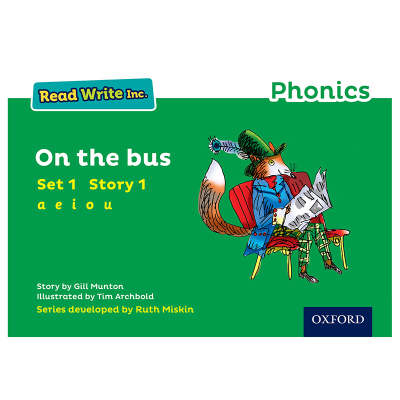
Linked to each stage are reading books (R,W,I Book Bag Books) that only contain the sounds your child has learnt or will be learning within the next week or two. This means your child will be able to decode (sound out) any word presented within that book—enabling them to be more independent. These books will be sent home and changed weekly in order for your child to practise 3 important reading skills: decoding (sounding out words), reading with fluency and comprehension. This model of reading the same book several times mirrors the way in which we teach your child in school.
Model for reading with children
|
First Read Focus (Day 1) : Decode (sound out) the words to read each word in turn. Children will practise re-reading each sentence to gain basic meaning.
|
Encourage your child to ‘sound out’ words that are unfamiliar to them. p-l-ai-n p-l-ay-i-ng If your child is unable to blend the sounds together accurately, you could ask them to ‘spot the special friends’ first ay then re-read it p-l-ay = play. When blending sounds together, please remember that not all words are ‘phonetically typical’. These are words that contain irregular spelling patterns; we call these Red Words (the, she, some, any). If your child is unable to automatically read one of these words, intervene and tell them what it is |
|
Second Read Focus (Day 2): re-read to build fluency. On the second read, your child should speedy read each word and therefore be encouraged to read for meaning and practise reading with expression by following the punctuation cues. |
To help encourage fluency (automaticity) and expression when reading, you could model reading a few sentences expressively for your child to then repeat in the same manner. Ask your child to re-read pages to build their speed and ability to recognise words on sight. |
|
Third Read Focus (Day 3): Re-read again for meaning/understanding. Each book contains some example comprehension questions that you will discuss with your child. |
Ask your child questions about the text to explore their understanding of what they have just read. You could ask them to summarise the story or identify the characters and their key traits (bossy, mischievous because….). If needed, you can re-read pages to them before asking questions. |
Reading at Home
KS1
In addition to their Read, Write, Inc Book Bag Book, children in KS1 will also come home with a book that they have selected from the library for their parents to read to them. The purpose of this book is to enable children to be exposed to stories and information that is beyond their own reading ability. These books will help to foster your child’s love of reading because of the quality time spent modelling what a successful reader sounds like. Changing our voices when a new character is speaking, raising our voices when signalled by an exclamation mark to show shock, fright or anger, will help children to comprehend (understand) the text’s content.

Reading Records
We encourage parents to write in their child’s reading record each time they read together. This is where parents can indicate whether it was their child’s school reading book or if it was a book being read to them - this can include library books or favourite books from home.
It has been proven beyond doubt that children who are read to are far more likely to go on to become successful independent readers who read for pleasure. Those who read for pleasure experience far greater academic success compared to their peers who are not exposed to reading models from an early age.
KS2 (Years 3-6)
It remains vitally important for our older children to continue to be motivated to read at home regularly; when their reading miles increase, so does their fluency and stamina which in turn increases their enjoyment of reading. When a child reads fluently, they are free to attend to the challenging job of engaging with the meaning of what they are reading - comprehension. Just like learning to decode words, comprehension is a skill that needs to be taught, modelled and rehearsed. For this reason, our older children need to continue to read to an adult as regularly as they did when first learning to read. Children in key stage 2 will either read a levelled reading scheme book or (year 5 and 6) a free choice book. Books may be changed less frequently due to the length of text or complexity of content, but this should not reflect the number of opportunities to read. In fact, now that children can read more independently, this should enable them to increase their frequency of reading practice.
Despite being more accomplished readers in KS2, it is still really important that children hear adults read. Reading expressively using the punctuation cues allows for a better understanding of the text, so modelling this to your child will help them develop the skill. Sharing in book talk, like we would if it were our favourite TV series, promotes a shared love of reading.
Reading Logs
We encourage parents to continue to write in their child’s reading log in key stage 2. Each log contains a wealth of information including VIPERS Question Stems to help support and challenge your child’s understanding, and a Word List to encourage your child to learn key spellings at home. Promoting home-school communication allows us to work together to support the children. We ask that everyone reads a minimum of 3 times in a week at home.
Teaching Reading
As you can see from the phonics section, the teaching of comprehension skills is explicitly taught through discussion, right from the early days of our phonics approach. When children reach Year 2, they are introduced to our Reading VIPERS (Vocabulary, Inference, Prediction, Retrieval, Sequence and Summary) comprehension approach. Reading sessions are taught regularly through to Year 6, both discretely and through writing composition, grammar and speaking and listening focused sessions too. The Reading VIPERS are displayed in every classroom and are also printed in our bespoke Comprehension exercise books to further reinforce their meanings.




Our Reading VIPERS comprehension lessons are engaging and skills focused. Teachers use a variety of interesting approaches to deliver reading skills. Teachers are aware of content from the National Curriculum that is not directly related to the Reading VIPERS (for example, poetry and traditional tales) and ensure this is sufficiently covered in English lessons too.
Each term, children will complete a Reading assessment test (from our PiXL assessment system) and teachers will record attainment, conduct a Question Level Analysis and informal assessment methods to identify gaps and steer planning. Teachers and Teaching Assistants are involved in delivering targeted extra support through interventions based on information gathered in assessments.





